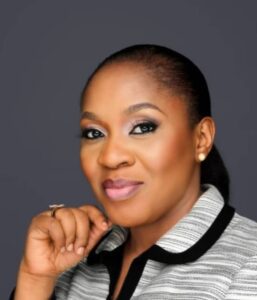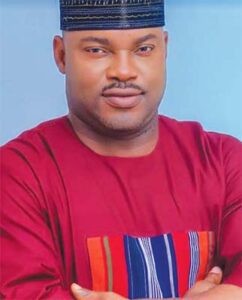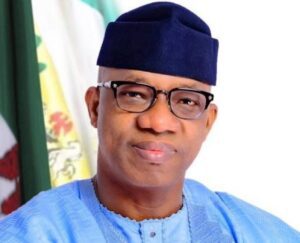
International Women’s Day: Lack of adequate education, sensitisation encouraging gender bias in Nigeria — Fatima
As the world celebrates International Women’s Day, Fatima Mohammed Habib in an exclusive interview with NIGERIAN NewsDirect, disclosed that lack of education, in-depth sensitisation are major impediments to the ‘breaking the bias’ against women and the girl-child. She stated that allowing women achieve their potentials is necessary for Nigeria’s Development. Excerpts:
Tell us about yourself and achievements? Being a gender advocate in a patriarchal society like ours comes with a host of challenges. What are some of these challenges and how are you tackling them?
I am Fatima Mohammed Habib, a graduate of political science from university of maiduguri, a Yali alumna, At the age of 14, I founded Advocacy for Human Value Foundation; a Non-profitable organization that aims on improving the lives of the most vulnerable by providing them with basic needs such as Water, Sanitation and Hygiene (WASH), health care services, protection and education across Nigeria. I am known for public speaking and making awareness on child sexual exploitation, gender based violence, and promoting girl child education in communities of which her organization has impacted about 7,000 thousands people over the years. In October, 2020, Huawei Technology Company Nigeria Limited partnered with my NGO and The Federal Ministry of Communication and Digital Economy in donating Standard equipment and renovated the school building of Al-Walidyn Charitable School in Pantami Community, Gombe State, Nigeria.
The challenges are cultural and religious beliefs which are the background of most people within my community. But most importantly, lack of education and in-depth sensitisation are also major impediments.
As the world celebrates the International Women’s Day, as a nation, do you think we are getting in right when it comes to women’s participation in politics?
It is indeed right, because the figure of women matters in every democratic setting as women determine the survival and consolidation of every State. Women are the backbone of political success, because with our figure we can determine the winner. I see it very apt to put cognisant in women’s participation in politics.
Recently, there was uproar as the Senate and House of Reps rejected some gender bills. What do you think is the impact of this development on the advocacy for gender equality and equity?
The rejection of the upper and lower chamber on gender bill should not weaken our efforts in struggling for gender right. It may be personal interest of some of the male politicians in the two chambers for fear of being overshadowed by their women counterparts. Even while the debate was going on, the male were teasing the ladies ‘you people want to take over my position right? We no go gree.’ As ideas don’t die but only go under and resurface some other time, the struggle for the emancipation of women will not be over and will never be so until it is over. Women participation in politics matter, as that will help to influence gender rights and development, hence, advocacy continues until women rights are recognizsed.
You own an NGO, how would you evaluate your activities and achievements in fulfilling the mandate of your NGO? How have you been impacting the nation and contributing to develeopment?
I will always sensitise, organise, educate and enlighten the masses on their rights and how to hold their leaders responsible; in so doing I will follow up with my NGO activities work plan and ensure that all the necessary machinery for the promotion of women interest and active participation in politics are enshrined and evaluated with a view to getting positive feedback for further action.
How does being a gender advocate reinforce your role as a woman in politics and a leadership role? Do you think the government is doing enough for women?
It really spurs my courage as an advocate, advocating for gender issues as I see it not only a privilege but a right. As Margaret Thatcher once said “in politics if you want something to be said ask a man but if you want something to be done ask a woman…” allowing women to actualise potential is key to achieving progress, development and for peace to reign in the society. Women are the mirror of development in this world .
To achieve true gender parity in all endeavour, what do you think must be put in place? How can we effectively tackle gender bias?
Women involment in active governance and policy making always make governance and prudence easy as they rarely get involved in malfeasance. Also, women can be recognised as sociological perspective of every development in the hemisphere.
Direct mobilisation and organisation of women, engagement of women in all active administrative activities and innovation centre for women’s training should be initiated.
Is Nigeria or Northern Nigeria ready for a female governor or president?
The answer is yes, we have very many women who are interested in politics, to be specific, myself, I am ready and I’m looking forward to seeing myself in that seat.
If there’s one thing you would change before the next International Women’s Day in 2023, what would it be?
Women should be the standard bearer of all political parties and they should be the head of state and government but in most of the African countries, culturel plays a role in thwarting the dream.
Is there anything you would like to tell the girl-child and women out there?
In a loud and sound voice, I want to tell my fellow women that we can and we deserve to be part of the system; being part of the system should not be a privilege for women but a right. Women can do it, let us not stop it. We are the true image of every democratic setting in the world.
In the whole world it’s only Rwanda that has 51% of women in politics, and invariablly speaking one can discern the development and growth of its economy compared to other countries of Africa. Nigeria should not be exception since women constitute a chunk of its population and this can be used as a veritable tool to determine decisions.
Therefore, we are the voice of the voiceless, we are the eyes of the blind, we are the limbs of the disabled ones and hope of the wretched. We stand for gender equality as a Right not a privilege.



